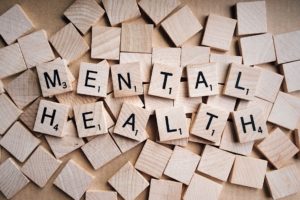
Those experiencing the transition into young adulthood are uniquely vulnerable to both psychosis and addiction. This information is important for anyone that works with this population to know, as early interventions yield the best results for overcoming the challenges of addiction and psychotic disorders.
Thankfully, the Substance Abuse and Mental Health Services Administration (SAMHSA) has provided a packet outlining the relationship young adults have with psychosis, addiction, and both simultaneously. Below, we will outline the basics of this incredibly informative and valuable resource.
Young Adults and Psychosis
Psychosis is a term referring to “a condition that makes it difficult for an individual to differentiate what is real and what is not. When people experience psychosis, their thoughts and perceptions are disrupted. They may perceive things that others do not or hold strong beliefs about things that are not true [1].”
The onset of psychotic symptoms can occur at any time, however, research overwhelmingly shows that this occurs more commonly between the ages of 16 to 30. “In many cases, first-episode psychosis impacts young people just at the time when they are preparing for and establishing autonomy as adults [1].”
Imagine working hard to create your future and seeing it within your fingertips only to be overwhelmed with frightening and challenging psychotic symptoms.
It is no wonder that young adults who experience first-episode psychosis struggle with symptoms such as isolation from others, anxiety, depression, and sleep deprivation, making it hard for them to participate in school or work or maintain relationships.
Young Adults & Addiction
The transitions into adulthood create stresses and negative emotions that make people incredibly vulnerable to issues with substance use and misuse.
Whether substance use becomes an unhealthy coping skill or is engaged in socially and becomes out of control, we are seeing more young adults being diagnosed with substance misuse.
15% of people in the US aged 18 to 25 had a substance use disorder when polled in 2016 [1].
A Dangerous Combination of Psychosis and Addiction
The presence of both addiction and psychosis can impact the other. Addiction can result in drug-induced psychosis, for example, and experiencing psychotic symptoms may lead one to use or misuse substances as an ineffective coping method.
 The SAMHSA pamphlet specifies that alcohol can be problematic when combined with psychosis because it is related to increased non-adherence to medication, a treatment aspect which may be important for living with psychosis [1].
The SAMHSA pamphlet specifies that alcohol can be problematic when combined with psychosis because it is related to increased non-adherence to medication, a treatment aspect which may be important for living with psychosis [1].
Additionally, “young adults with first-episode psychosis who continue to use cannabis over time are more likely to experience significantly poorer outcomes than those who either have never used cannabis or those who used cannabis but stopped after engaging in treatment [1].”
Treatment of Psychosis and Addiction
As with most dual diagnoses, it is not possible to attempt to treat one on its own and then the other. This is why these are referred to as co-occurring disorders. They do not act alone and, instead, are a complicated ball of behavioral, emotional, and psychological yarn.
SAMHSA recommends a recent innovative treatment that has shown beneficial outcomes over time, Coordinated Specialty Care (CSC). CSC “specifically focuses on providing comprehensive evidence-based treatment to young people experiencing first-episode psychosis [1].”
For substance use, SAMHSA research indicated that individuals should undergo targeted substance use treatment that “is likely a longer-term process that unfolds over time as treatment for first-episode psychosis helps young people feel better and identify reasons for change [1].”
Psychotic disorders are chronic and lifelong however, substance use disorders do not have to be. Treating both at once can help an individual to overcome addiction while learning to live effectively with their psychotic disorder.
Resources:
[1] SAMHSA (2019). First-episode psychosis and co-occurring substance use disorders. Substance Abuse and Mental Health Services Administration, retrieved from https://store.samhsa.gov/system/files/pep19-pl-guide-3_0.pdf.
About the Author:
 Margot Rittenhouse, MS, NCC, PLPC is a therapist who is passionate about providing mental health support to all in need and has worked with clients with substance abuse issues, eating disorders, domestic violence victims, and offenders, and severely mentally ill youth.
Margot Rittenhouse, MS, NCC, PLPC is a therapist who is passionate about providing mental health support to all in need and has worked with clients with substance abuse issues, eating disorders, domestic violence victims, and offenders, and severely mentally ill youth.
As a freelance writer for Eating Disorder and Addiction Hope and a mentor with MentorConnect, Margot is a passionate eating disorder advocate, committed to de-stigmatizing these illnesses while showing support for those struggling through mentoring, writing, and volunteering. Margot has a Master’s of Science in Clinical Mental Health Counseling from Johns Hopkins University.
The opinions and views of our guest contributors are shared to provide a broad perspective of addictions. These are not necessarily the views of Addiction Hope, but an effort to offer a discussion of various issues by different concerned individuals.
We at Addiction Hope understand that addictions result from multiple physical, emotional, environmental, and genetic factors. If you or a loved one are suffering from an addiction, please know that there is hope for you, and seek immediate professional help.
Published on January 28, 2020
Reviewed & Approved by Jacquelyn Ekern, MS, LPC on January 28, 2020
Published on AddictionHope.com
